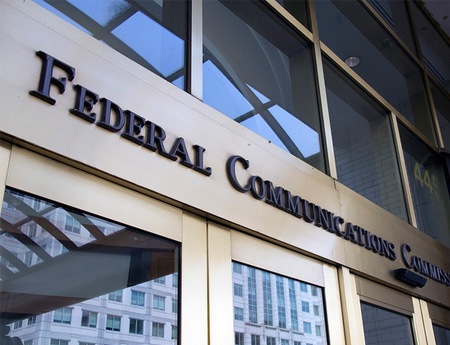More Paper Flies in Spectrum Auction Challenges

The smarter way to stay on top of broadcasting and cable industry. Sign up below
You are now subscribed
Your newsletter sign-up was successful
It’s March Madness, LPTV style, as the court filings and responses continue to fly over low-power TV participation in the FCC's spectrum auction.
The U.S. Court of Appeals for the D.C. Circuit has given the FCC until March 8 to respond to the request of LPTV licensees Videohouse, Fifth Street, and WMTM that the court stay the March 29 start of the auction.
Meanwhile an LPTV rights group has told the same court the FCC tried to systematically purge Class A LPTVs eligible for the auction by levying large fines for minor infractions while offering forgiveness from those fines in exchange for relinquishing Class A status and forcing stations into "noncompliance" by systematically denying applications related to the operation of their facilities.
Videohouse et al. were all excluded from participation and thus from the possibility of millions of dollars in auction payouts or protection of their signals after the auction. Videohouse et al. have until March 9 to respond.
The FCC is already under a March 4 deadline from the same court to respond to the request by yet another LPTV licensee, Latina Broadcasters of Daytona Beach, which has until March 7. Latina either wants the court to stay the FCC's Feb. 12 decision that it can't participate in the auction, after the FCC initially said it was eligible, or alternatively to also delay the start of the auction.
Both Latina and Videohouse et al. have underlying challenges to their exclusion from the auction being heard in the D.C. court and don't want the auction to start—unless they are in it—until those cases have been resolved, which won't happen before at least May and likely later.
Elsewhere on the Videohouse et al. front, the LPTV Spectrum Rights Coalition (SRC), a leading voice for preserving and protecting LPTVs—Videohouse and WMTM have provided financial support to the group—has filed an amicus brief in the Videohouse et al. challenge to the auction.
The smarter way to stay on top of broadcasting and cable industry. Sign up below
SRC says the FCC engaged in a pattern of "attempting to disqualify as many Class A [and Class A-eligible] stations as possible from the impending spectrum auction by excessive regulatory enforcement and offers of relief from sever financial penalties if they agree to relinquish Class A status.
The FCC allowed Class As to participate in the auction, but not other LPTVs.
"There were approximately 500 Class A stations and approximately 1,800 full-power TV stations licensed at the time of the Incentive Auction’s initial planning," SRC told the court. "During the intervening five years, SRC was able to find the above-cited 58 instances where Class A stations received letters from the Commission threatening financial sanctions for mostly paperwork violations, compared with only 12 instances of similar enforcement against full-power stations."
SRC points out that since full-power stations can't be downgraded, the FCC had an incentive to weed out Class As in order to reach its stated goal of freeing up as much spectrum as possible.
"At the end of 2011, just months before Congress passed the Spectrum Act and set in motion the plans for the Incentive Auction, there were nearly 500 licensed Class A stations," SRC said.
"At the end of 2015, four years later, there were fewer than 400. In other words, more than 17% of Class A stations were downgraded or had their licenses cancelled, each representing potentially millions in Incentive Auction payout savings and substantial hours of spectrum repacking work. It is difficult to escape the conclusion that this reduction in the number of Class A stations demonstrates the success of a systematic effort by the FCC to preemptively clear TV spectrum in advance of the Incentive Auction in order to save money and ease post-auction repacking."
SRC says Congress did not authorize the FCC to discriminate against LPTVs or use its power in an arbitrary and capricious manner in violation of the law.
The FCC has denied there was any policy of systematic exclusion.
Contributing editor John Eggerton has been an editor and/or writer on media regulation, legislation and policy for over four decades, including covering the FCC, FTC, Congress, the major media trade associations, and the federal courts. In addition to Multichannel News and Broadcasting + Cable, his work has appeared in Radio World, TV Technology, TV Fax, This Week in Consumer Electronics, Variety and the Encyclopedia Britannica.

